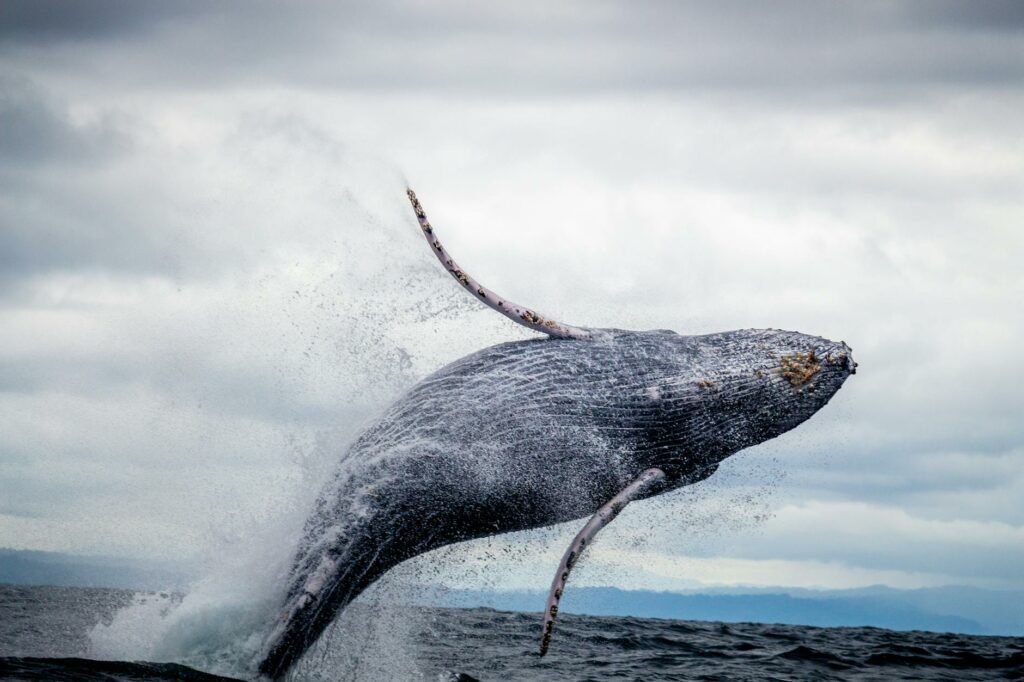An effort by a few Caribbean Community countries to lift a decades-old ban on the commercial hunting of whales failed at last week’s International Whaling Commission conference in Peru but the states have pledged to redouble their efforts by the time the next summit rolls around in two years.
For example, the Eastern Caribbean nation of Antigua had made an effort to declare commercial whaling as “a source of food security” but once attending delegates realized that the idea was not gaining any traction, the proposal was withdrawn. The majority of delegates had instead supported the idea to maintain the current moratorium on commercial hunting which has been in place since the mid-1980s. Local environmental groups say authorities have done the correct thing.
Whaling, to many of the Eastern Caribbean nations, is important for tourism, sightseeing, and cultural purposes. For example, St. Vincent and its federation island in the Grenadines, is given different consideration by the IWC, as just one of a few nations around the world with special permission to hunt a limited number of whales to support local indigenous and aboriginal populations. The whales are used for food, healing oils, and medical purposes, officials say.
The draft resolution on food security had been submitted by Guinea, Cambodia, Ivory Coast, The Gambia, Ghana, Senegal and St. Kitts, collaborating with Japan and its relentless efforts to end the moratorium.
Meanwhile, local environmental groups in Antigua have offered congratulations to the administration of Prime Minister Gaston Browne for withdrawing the move to end the whaling ban under the guise of food security, contending that whales need to be protected and conserved.
At least six such groups had written to Browne demanding that Antigua withdraw the resolution. “Whales are essential for the health and productivity of the marine ecosystems, playing a vital role in nutrient cycling and supporting a rich diversity of marine life,” they said in the missive to the PM. “Their feeding habits stimulate phytoplankton growth, the foundation of the marine food web, ensuring health and productivity in marine ecosystems. It is heartwarming to see something positive happen regarding the protection of the marine environment with all the negative things around us. Anything that can be done to protect the marine environment is a win-win. It has been awesome to see how many Antiguans have taken a stand against this pro whaling stand,” the groups stated.
They also pointed out what they termed a contradiction between Antigua’s marine conservation stance at this year’s Small Island Developing States conference held in Antigua, and its position in Peru, noting that “it could also negatively impact Antigua and Barbuda’s tourism sector and international investment, as we continue to promote our country as an ‘eco-conscious’ destination.”
Local media quoted Martha Watkins-Gilkes, of the Antigua Barbuda Independent Tourism Promotion Corporation (ABITPC) as saying that Antigua’s efforts to end the hunting ban made no real sense.
“As a concerned citizen and environmentalist, I must ask, what benefit does the average Antiguan gain from our country supporting the slaughter of whales and being labeled as a pro-whaling nation? The meat is hardly consumed in the federation with Nevis. “Whales are essential for the health and productivity of marine ecosystems. They play a vital role in nutrient cycling and supporting rich biodiverse marine life.”
Like this:
Like Loading…
Related
Source link : http://www.bing.com/news/apiclick.aspx?ref=FexRss&aid=&tid=66fe1d656ba7467287864159985d60dd&url=https%3A%2F%2Famsterdamnews.com%2Fnews%2F2024%2F10%2F03%2Fcaribbean-nations-fail-to-overturn-ban-on-whaling%2F&c=14315119995490180545&mkt=en-us
Author :
Publish date : 2024-10-02 17:18:00
Copyright for syndicated content belongs to the linked Source.
